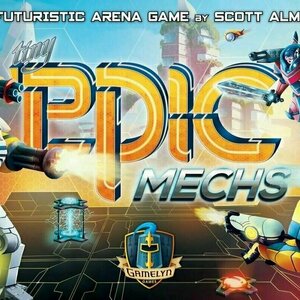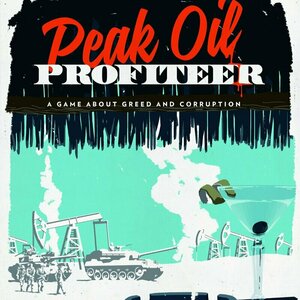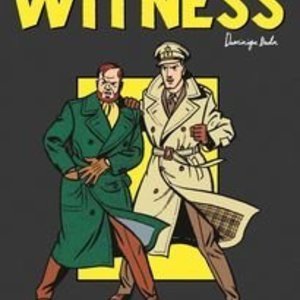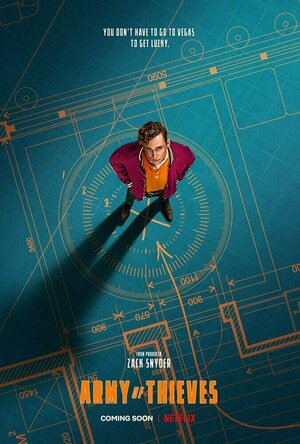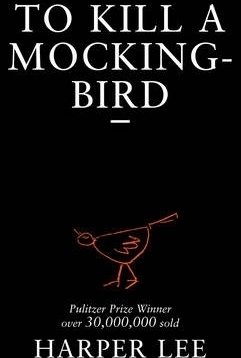Purple Phoenix Games (2266 KP) rated Tiny Epic Mechs in Tabletop Games
Jun 30, 2021
Disclaimer: I do not intend to rehash the entire rulebook in this review, but give a general overview of turns and gameplay. For a more in-depth look at the rules, pick up a copy of the game from the publisher or your FLGS! -L
Tiny Epic Mechs is a game of action programming in which players take on the roles of Mech pilots competing in an arena-style battle royale event. Through the purchase of new weapons, powering up into Mech suits, combat with opponents (either face-to-face, or through the deployment of mines and turrets), and controlling different zones of the arena, players are trying to earn the most Victory Points by the end of 6 rounds of play. To begin, follow the setup instructions for the arena, based on the player count. Each player receives a player card (to track resources, and also acts as a reference card), a Pilot card, components in their chosen player color, and 1 Basic Weapon card to equip on their Pilot. Set the Round Tracker to round 1, create a market row of Advanced Weapons, place the Mighty Mech suit on it’s corresponding zone card, and the game is ready to begin!
Each round consists of 3 phases: Program, Execution, and Scoring. During the Program phase, players will secretly choose 4 Program Cards from their hand to represent their 4 moves/actions for this round. The chosen Program Cards will be laid out in order above the player card, and will immediately be covered by a face-down unused Program Card. (There are 8 Program Cards total, only 4 of which are used each round). It is important to note that the orientation of the Program Cards matters – Program Cards must be played parallel to the zone cards of the arena. Since they dictate the directions in which you move, you must place them exactly as you want to move. During the second phase, Execution, players will take turns revealing their Program Cards, one at a time and in order, and resolving the actions. To Execute a Program Card, you will first move your Pilot in the direction of the card’s arrow, and then resolve the action listed on the card. Movement is a must and cannot be skipped.
After Movement, you may perform the action on your card – Collect Resources, Purchase a Weapon, Deploy a Mine or a Turret, or Power Up. The first three of these are pretty self-explanatory. The Power Up action allows your Pilot to either heal themselves or upgrade into a Mech suit. Now to discuss crux of the game – combat. During the Execution phase, if you enter into the same zone as another player, you must immediately begin Combat. You will use your equipped weapons to battle your opponent, in hopes of knocking them out or forcing them to retreat. Weapons will deal base damage, or Power Attack damage, based on the circumstances of the combat. To attack with a weapon, you will deal the base damage immediately to your opponent. After your attack, the weapon you used is Exhausted and cannot be used again this combat. Your opponent then has the chance to attack back – either regularly or via Power Attack (I’ll leave that for you to discover on your own). Combat continues, alternating between players, until either a player is KO’d, or is forced to retreat because all of their weapons have been Exhausted. Initiating combat, dealing damage, and defeating your opponent all earn you VP, so combat is a vital part of the game!
After all players have revealed and performed their final Program Card, the round ends. At the end of the 2nd, 4th, and 6th round, players will perform a Scoring phase, earning points for any zones occupied by their own mines, turrets, or Pilot. At the end of the 6th and final round, scoring takes place as stated above, but players will also earn VP for all weapons they have purchased throughout the game. The player with the highest VP is the winner!
I have to admit that I am not a person who generally enjoys the mechanic of action programming. I like to really think through my strategy, and execute it exactly as I want. Action programming makes strategizing more difficult because your success or failure depends on the actions selected in advance by your opponents. You can’t really adapt mid-round, you kind of just have to deal with what’s happening. That being said, Tiny Epic Mechs, in my opinion, has a good balance of combat and actions/resource management. Your entire strategy can’t be based on combat – you need to upgrade weapons, climb into your Mech suit, etc. – and the ability to vary combat with individual upgrades makes the gameplay feel more strategic. Yes, your opponents might still mess up some of your best-laid plans, but you have to be prepared for any situation.
The overall gameplay can feel calculated or chaotic simply based on the player count. In a 2-player game, obviously there are only 2 people, and you have more opportunities to really focus on your individual Pilot before necessarily traipsing into combat. In a game with 3 or 4 players, interactions between players are inevitable and can really make the action programming mechanic stand out/feel more random/etc. Especially with a small play arena, Pilots will be crossing paths at probably every turn, and you may be forced into more combats that you anticipated. With only 2 players, there are interactions between players, but it feels a little more calm overall, and you can really work with a strategy instead of having to adapt to sudden changes in the arena.
Let’s touch on components for a minute. As always, this Tiny Epic delivers on quality components. The cards are colorful and sturdy, the text easy to read. The wooden components for tracking health/resources are good, but maybe just a little too small, even for my regularly-sized hands. The ITEMeeples, Mech suits, and weapons are always fun to play with, and sturdy enough to hold up to lots of plays. All in all, great work from Gamelyn Games once again.
For being a game of action programming, I have to admit that I enjoyed Tiny Epic Mechs more than I thought I would. At least at a 2-player count. Anything more feels too chaotic and random to me. The elements of programming and combat are engaging and elevate the gameplay, but it’s just not my favorite mechanic. Will I keep this game? Definitely. For what it is, I think it does a good job. Will I get more action programming games in the future? Probably not. I’d say Tiny Epic Mechs fills that spot for me, and that is all good in my book. Check this one out if you’re looking for something fun and relatively simple that utilizes this mechanic. Purple Phoenix Games gives it a mechanical 7 / 12.
Purple Phoenix Games (2266 KP) rated Peak Oil Profiteer in Tabletop Games
Jun 11, 2021
Disclaimer: For this preview, we played the Tabletopia version of the game. The pictures you will see below are screenshots from my plays online. Also, I do not intend to rehash the entire rulebook, but rather provide a general overview of the rules and gameplay. For a more in-depth look, check it out when it hits Kickstarter! -L
Peak Oil Profiteer is an economic game of area majority/movement, network building, and simultaneous action selection in which players take on the roles of oil corporations competing to make the most money in an oil-rich country before corruption overtakes the land. There is a power struggle between 3 Factions, so play your cards right (literally) to come out ahead. To setup for a game, set the board in the middle of the table, populate the 3 Faction Tracks with their corresponding cubes, place the Corruption cube on 93%, create the Contingency deck (as described in the rules), shuffle the Blackmail deck, and give each player their 5 Action cards, starting Money, and 3 Pawns in their color. Flip all 9 Leader tokens face-down, shuffle them, and randomly give one to each player, placing the remaining Leader tokens face-up near the board.
The game is played over a series of rounds. At the start of every round, one card from the Contingency deck will be revealed/resolved. Contingency cards will either be Events (that will most likely alter the rules for the current round), or Consultants (to be ‘hired’ by an individual player for special abilities). Once the Contingency card has been dealt with, the round moves to the next phase: Action Selection. All players have the same 5 Action cards, numbered 1-5, available to them every round. Players will select one of their 5 Action cards and place it face-down in front of them. Then, in numerical order, all Action cards will be resolved. When your Action number has been called, you will reveal your Action card, perform the corresponding action, and take the card back into your hand. Once all players have performed their Action for the round, check the Corruption track – if it has reached 100% then the game ends, and if not then the game moves to a new round.
The 5 Actions available to all player are: 1. Networking, 2. Sell Weapons, 3. Buy Drilling Rights, 4. Sell Oil, and 5. Contingency. Networking allows you to collect Blackmail in order to win control of Faction Leaders. You may only Sell Weapons to a Faction if you control at least one of its Leaders. You will earn a set amount of Money, and a new Troop cube will be added to the game board. To Buy Drilling Rights from a Faction, you again need to control at least one of its Leaders. Pay for the rights, and then add one of your Pawns to that region of the board. Once you’ve got Drilling Rights, you can Sell Oil. Remove your Pawn from the corresponding region, and collect the appropriate amount of Money. And lastly, Contingency allows you to either ‘hire’ a Consultant, or perform an extra action as a result of an Event.
The amount of Money that you pay/earn for each of the actions is dictated by the Faction Tracks. For example, the price of Weapons decreases as Factions get more Troops on the board, which means you won’t earn as much selling to a Faction with lots of Troops in play. You have to time your Actions wisely in order to maximize your profit! If, at the end of a round, the Corruption track has reached 100%, the game ends. Players count up their Money, and the player with the highest earnings is declared the winner.
Although the theme isn’t something that would normally appeal to me, I have to say that Peak Oil
Profiteer is a solid game. The gameplay is straightforward, the player interaction is competitive but not combative, and the strategy keeps you engaged all game. The ultimate goal is to earn the most Money, and the Faction Track creates sort of a “commodity speculation” type mechanic to the gameplay. The costs vary depending on the Faction Track, and it can be manipulated by all players. That in and of itself creates some fun player interaction because the Faction Track affects all players. Doing something to block an opponent now may come back to bite you next round. Another neat element about Peak Oil Profiteer is that players select their Actions simultaneously, and they are then resolved in numerical order. Depending on where your turn falls in the round, you might be able to do just what you had planned, unless an opponent went before you and changed the game layout. There is an amount of uncertainty that forces players to adjust their strategy on the fly and adapt to the current situation.
I will say that resolving Actions in numerical order does kind of add an element of Action Programming, if you will. Once you have selected your Action this round, you are locked in. No matter what happens before your turn, you must perform your selected Action if at all possible. It creates some neat strategic opportunities, but at the same time, can feel like you’ve been blocked out. Just something to consider! Normally, I would touch on components, but as this was a Tabletopia version of the game, I can’t really do so. I will say that the art style and card/board layouts online are thematic and immersive. If the physical version of the game looks anything like this digital version, it’ll be a good looking game! One component that I especially appreciated was that each player gets a Player Reference/Round Reference card. It gives you the information you need without being too wordy, and it stops you from having to refer back to the rule book every turn. So big thanks from me for that!
Having never played the original Peak Oil game, I have to say that Peak Oil Profiteer made a good impression on me. It’s fast to teach and learn, engaging, and strategic enough to keep you thinking. The fluctuation of the Faction Track, and the order of Action resolution add elements of uncertainty and ‘luck’ (if you will) that keep the game from having a clear run-away winner. Everyone is in it until the very end, and the race for the most Money is a nail-biter for sure. If you’re looking for something interactive but not too confrontational, while also putting your strategic chops to the test, consider backing Peak Oil Profiteer on Kickstarter!

Word Chums!
Games, Entertainment and Stickers
App
More fun than Words With Friends and more addicting than Scrabble, WORD CHUMS: the highest rated...

Quick Money Premium: Budgeting, Expense, Spending
Finance and Utilities
App
A QUICK AND SMART BUDGET MANAGEMENT TOOL Quick Money Recorder Premium will help you to take the next...
Purple Phoenix Games (2266 KP) rated Witness in Tabletop Games
Jun 12, 2019
Witness is a cooperative game of memory and deduction set in the world of the 1940’s comic “Blake and Mortimer.” You and your compatriots are working together to solve mysteries! But there’s a catch – you each only know certain information, and are limited in how you are allowed to disclose it to each other. If you could just say it outright, there’d be no fun! Each player gets a character book filled with cases and information. Everyone reads their information for the chosen case, and then, like in Telephone, and in a certain order, players whisper their information to the player next to them. Play continues until everyone has heard (through the grapevine, of course) all 4 players’ information. After all information has been relayed, players get a chance to write down any notes from what they remember – but only after everything has been said! Players then open the Questions booklet to their specific case and answer three questions about their specific puzzle. Players receive points for correct answers, and as a team, are attempting to achieve the highest score possible!
I think that Witness is such a neat game. It’s a fun mechanic – you’re trying to remember all of your information to accurately pass it on, only to hear more information to add to what you already need to remember, to then pass it on again! It definitely makes for some funny misheard information! Another aspect of Witness that I like is that it goes beyond a regular game of Telephone in the fact that there’s an end goal – you’re trying to piece together all of the information as you hear it second- or even third-hand to correctly answer some questions. There’s more pressure to communicate accurately because you and your team are striving for a compilation of perfect information to help you score the most endgame points. Witness ups the stakes more than your average game of Telephone, and that’s what makes it interesting and engaging for me.
The major downside of Witness is that it is a game for EXACTLY 4 players. You can’t play with 3. You can’t play with 5. It absolutely 100% must be played with 4 players. And sometimes that’s just not possible. We all know those game nights where maybe only 2 or 3 people are available. Or maybe those times when you invite a large number of people over and they all come. In either scenario, Witness is out, and that is a bummer because it is such a neat game. Since the information is divided between 4 books, there’s unfortunately no way to adapt it for other player counts. So you can either play Witness or you can’t – there’s no ‘maybe.’
Overall, I enjoy playing Witness. I think it’s a unique approach to a simple game. Unfortunately, I believe this game is out of print, but if you can get your hands on a copy, or you see it on a friend’s shelf, give it a play! Whispering to your neighbor and solving little logic puzzles never seemed so fun! Purple Phoenix Games gives Witness a mysterious 11 / 18.
https://purplephoenixgames.wordpress.com/2019/04/02/witness-review/
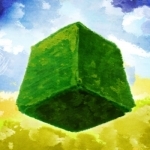
Dream of Pixels
Games and Entertainment
App
A very beautiful falling blocks puzzle game. "Best iPhone and iPad Games of 2012: Puzzle"...

My Days X - Period & Ovulation ™
Lifestyle and Health & Fitness
App
"*** ABSOLUTELY LOVE IT ***, I came pregnant after 2 Month using it ! Thanks 2 My Days" The new...

My Days X - Period & Ovulation ™ (Pro)
Lifestyle and Health & Fitness
App
This is the AD-FREE Version from the popular Application "My Days - Period & Ovulation". --------...
Bob Mann (459 KP) rated Army of Thieves (2021) in Movies
Nov 4, 2021
Plot Summary:
Sebastian Schlencht-Wöhnert (Matthias Schweighöfer) is a geek obsessed with the work of legendary safe-manufacturer Hans Wagner whose magnum opus was a series of four intricate safes named after the four parts of his namesake’s Ring cycle: The Rhinegold, The Valkyrie, Siegfried and Götterdämmerung.
Seeking more the glory of cracking the legendary safes (rather than the riches within), high-class jewel-thief Gwendoline (Nathalie Emmanuel) teams with Sebastian to crack the three known safes (in Paris, Prague and St Moritz) before they are officially ‘retired’. Together with Korina (Ruby O. Fee), muscle-man Brad (Stuart Martin) and getaway driver Rolph (Guz Khan) the gang try to stay one step ahead of obsessed Interpol agent Delacroix (Jonathan Cohen).
Certification:
US: TV-MA. UK: 15.
Talent:
Starring: Matthias Schweighöfer, Nathalie Emmanuel, Ruby O. Fee, Stuart Martin, Guz Khan, Jonathan Cohen.
Directed by: Matthias Schweighöfer.
Written by: Shay Hatten (from a story by Shay Hatten and Zack Snyder).
“Army of Thieves” Review: Positives:
I really wasn’t expecting much from this offering. For me, the character of Dieter in “Army of the Dead” was an annoyingly quirky comedy character in a zombie-actioner that you just wanted to punch in the face…. repeatedly. But in contrast, this Dieter-centric film is deliberately quirky throughout and it just all worked for me. Under his own direction, Schweighöfer’s Sebastian/Dieter becomes a genuinely quirky, lovelorn and loveable loser that you want to root for.
The look and feel of the film is utterly glorious. The wonderful cinematography by Bernhard Jasper makes the introduction to the European locations feel Bond-like and the combination of Production Design and Special Effects make the safe-cracking scenes tense, dynamic and beautiful to watch. It’s all nicely rounded off by a quirky Steve Mazzaro / Hans Zimmer score.
Shay Hatten’s script delivers a nice balance of action and exposition. It actually – shock horror – takes time to flesh out some character behind the generic heist-movie stereotypes. Setting the movie in the same timeline as the emerging Nevada zombie-apocalypse as “Army of the Dead” is neat: (although those expecting extensive zombie-action will feel short-changed). And having the Las Vegas safe as the mythical Götterdämmerung is a nice touch. Above all – “SURPRISE!!!” – the script surpassed the essential six-laughs test.
The acting is above par, with Schweighöfer putting in a fabulous turn and the stunningly beautiful Nathalie Emmanuel (best known for being Ramsey in the Fast and Furious series) gets to be a lot more than mere window-dressing here. Stuart Martin is notable here for looking astonishingly like Hugh Jackman…. I mean, really, they could be twins.
Negatives:
I mean, honestly, there are more holes in this story than a St Moritz swiss-cheese. Why would all of the safes, owned by different private institutions, be being “decommissioned” due to a Zombie outbreak on the other side of the world? Can the Interpol team really be that incompetent? And however clever he is, I don’t buy that you can open safes like that!
Although I liked the balance of the script overall, the story is pretty simplistic and linear.
Summary Thoughts on “Army of Thieves”
Sometimes a little movie appears that surprises and delights you, and this was one of those for me. It’s not big and it’s not clever. But it is very nicely made, thoroughly entertained me and was – for me – way better than its source movie. A recommended watch on Netflix.
Bethy (8 KP) rated To Kill a Mockingbird in Books
May 13, 2019
If you skimmed the surface a suppose you could see it that way - you're guided through the everyday life of Jean Louise and her family, playing with her brother, petty school issues and fights.
It's an easy read because we can all relate to this little tom boy, from getting annoyed at being told what to wear, getting muddy in the yard, being excited about cake baked by the neighbours.
You find yourself rolling along with the kids, enjoying some nostalgia, only to realise an abundance of adult issues have been cleverly addressed throughout, racism, segregation, nazis, rape, death, drug abuse, isolation and loss.
The more you consider this concept, the more you realise how well written this book is! You feel safe, you are with the innocent and constantly told "it's not time to worry yet", all the while you are facing some of the worst human kind has to offer.
When you realise this you are left with a longing for the naivety of the young, an admiration for their ability to have everything made better with curling up on your father's lap and actually believing someone when they say "it's not time to worry yet".
Despite the adult content and melancholy, this book leaves you feeling warm and hopeful for the human condition.
